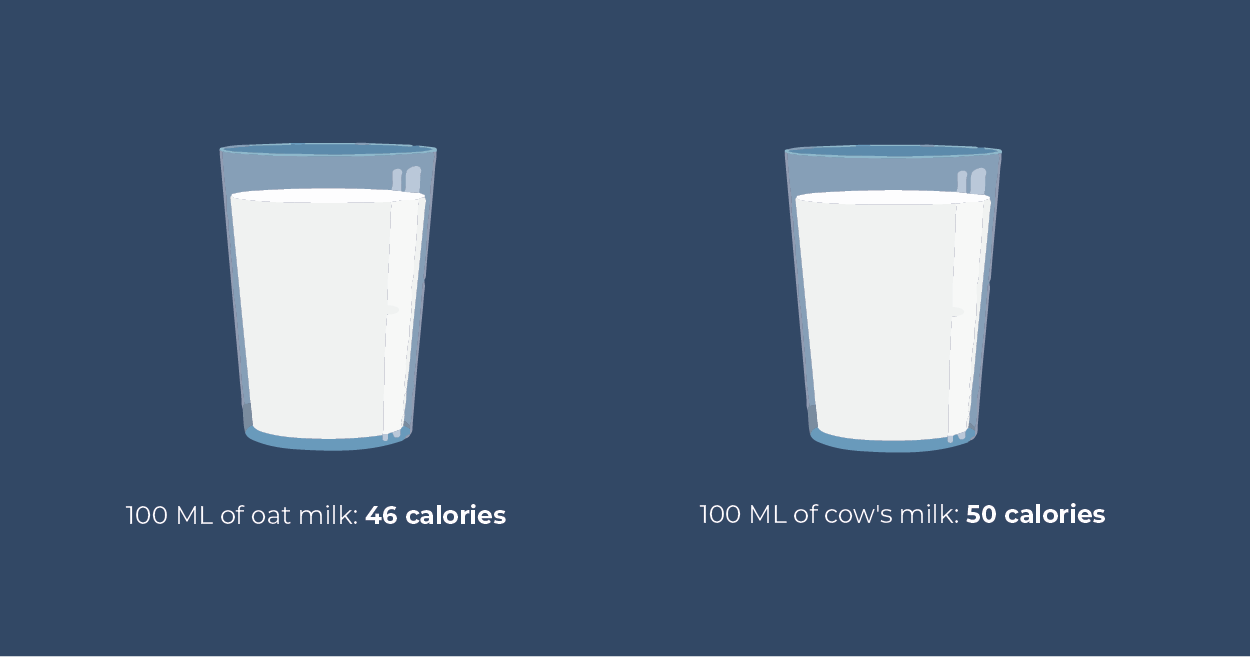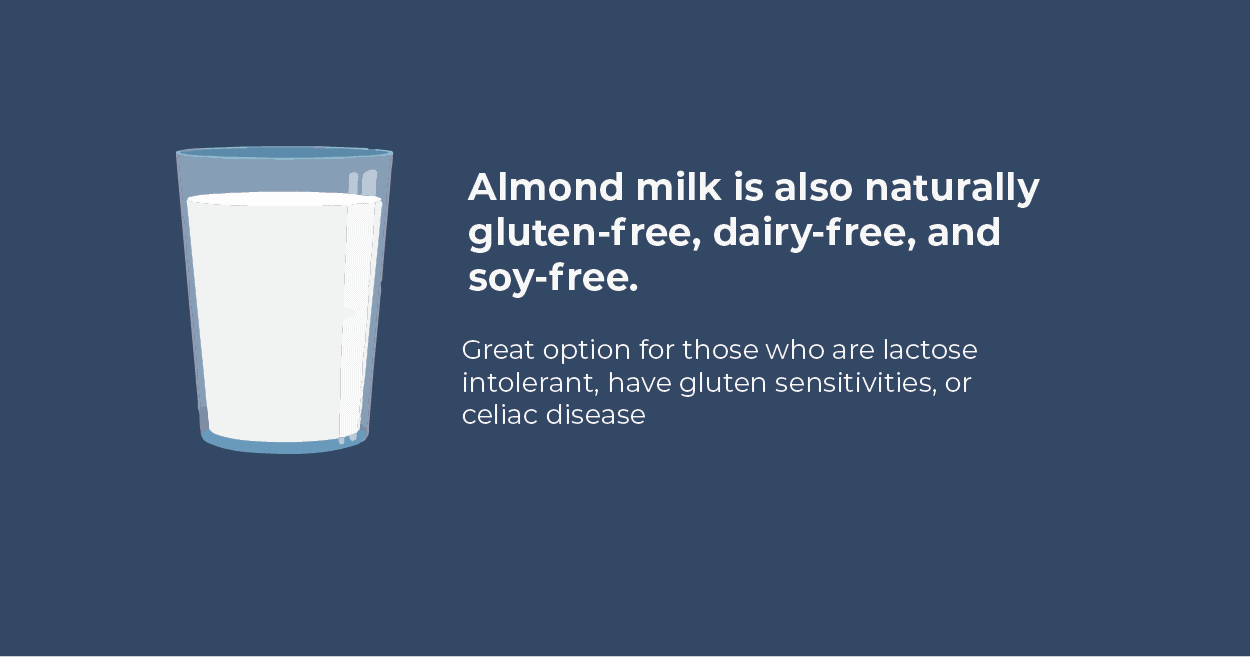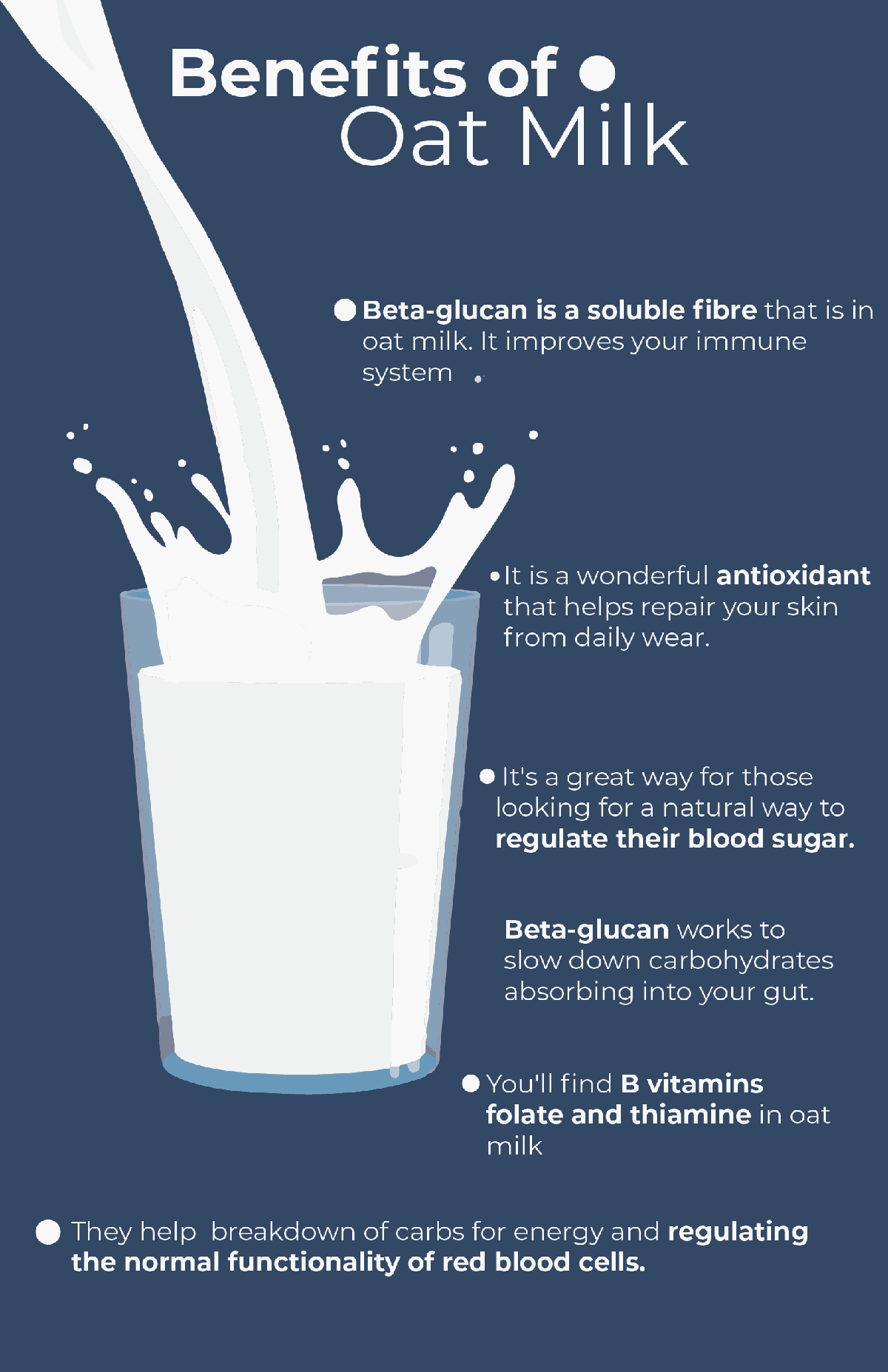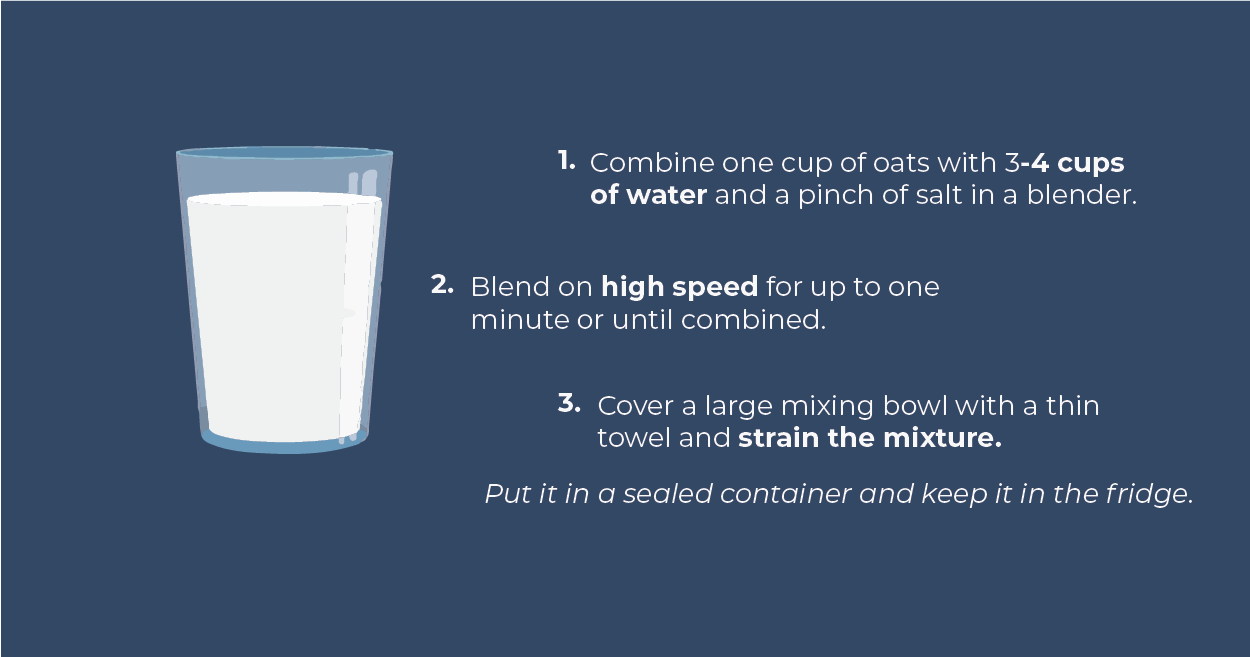If you haven't tried oat milk yet, you're one of the few people in the world who hasn't. Oat milk is growing in popularity, with it being the second most popular plant-based milk, right after almond milk. There were even moments in the last year where there was an oat milk shortage, much to the chagrin of baristas across the globe.
Our country is no exception. Oat milk in Canada has become more and more prevalent as people learn about the health benefits dairy-free milk has to offer.
Oat milk isn't used to only flavour coffee. It can be used in a variety of ways to replace traditional cow's milk. Whether you have dietary restrictions or are wanting to reduce your carbon footprint by consuming fewer animal products, oat milk is a great way to introduce plant-based foods into your life.
Why Oat Milk in Canada Is a Growing Trend
Did you know that oats are one of Canada's most underrated crops? Across the board, Canadians consume around 20% less dairy milk than they were in the early 2000s. They've replaced dairy milk with plant-based alternatives, such as:
- Almond
- Soy
- Coconut
- Cashew
- Rice
Now, oat milk has entered the scene. Oatly, one of the most popular oat milk brands, was introduced in Canada in 2017. The sales of oat milk increased by over 250% after that.
Many of the oats in oat milk are Canadian oats that are grown in Saskatchewan. The province is one of the largest exporters of oats in the world and Canada's largest producer of oats.
Oat milk is made by soaking and then blending oats with water. It is then strained to separate the "milk" from the remaining oats. Some of the bigger brands add additional ingredients, such as thickeners, stabilizers, colours, sugars, and flavours.
Oatly is one of the healthiest brands available as they don't add a lot of additional ingredients. Oatsome is another great option, although it's on the pricy end.
A common food additive called carrageenan is added to other non-dairy milk like almond and coconut. This can cause digestive issues for those who are susceptible to it. Carrageenan isn't added to oat milk, making it easier to digest.
Oat Milk vs Cow's Milk
Oat milk and cow's milk have around the same amount of calories:
- 100 ML of oat milk: 46 calories
- 100 ML of cow's milk: 50 calories
Cow's milk has far more protein (around 3.6 grams) than oat milk (around 1 gram). If you're seeking to build muscle or lose weight, more protein is a good thing. Cow's milk also naturally contains higher amounts of vitamins and minerals, such as vitamin D, vitamin B12, and potassium.
Oat milk tastes a lot like cow's milk, but it does have an oat-like aftertaste. It tends to be thicker than other types of plant-based milk, so it mimics the consistency of cow's milk more. It's a good dairy substitute if consistency is important to you.
Cow's milk has a larger carbon footprint than other types of milk. Its environmental impact is at least three times more than producing non-dairy milk.
Oat Milk vs Almond Milk
Oat milk mimics the texture and consistency of cow's milk more than almond milk. As was mentioned before, the added ingredient of carrageenan in almond milk can result in some digestive problems in people. If you regularly have digestive issues, you'll want to steer clear of non-dairy milk with that additive added.
Almond milk is lower in calories than oat milk. If you're trying to lose weight, opting for almond instead of oat milk may be a good idea.
Almond milk is also naturally gluten-free, dairy-free, and soy-free. It's a great option for those who are lactose intolerant, have gluten sensitivities, or celiac disease. One thing to keep in mind is that if you're allergic to almonds or another type of tree nut, you should avoid almond milk.
Oat milk is more sustainable than almond milk. It takes far more water to produce almond milk than other types of plant-based milk.
Depending upon your allergies, oat milk is a better option than almond milk. Nutritionally they're very close, but oat milk contains fewer ingredients and is better for the environment.
What Are Some of the Benefits of Oat Milk?
While most of the protein and dietary fibre of the oats used to make oat milk is discarded during the straining process, the remaining milk has a lot of those properties. Oats are able to absorb water really well and a lot of micronutrients and macronutrients pass into the resulting product.
Immune System
Beta-glucan is a soluble fibre that is in oat milk. It improves your immune system. Regularly consuming it can improve your body's natural ability to heal and prevent infection.
Skin and Hair
Before you go dumping a carton of oat milk on your hair, check out oat milk beauty products instead. It is a wonderful antioxidant that helps repair your skin from daily wear. When used in hair care products, it works to nourish the scalp for anyone who has sensitivities or allergies to fragrances.
Blood Sugar
Additionally, beta-glucan works to slow down carbohydrates absorbing into your gut. It provides a steadier and slower supply of sugar into your bloodstream. It's a great way for those looking for a natural way to regulate their blood sugar.
Bone Strengthening
Oat milk contains the following minerals:
The presence of these minerals is vital for micronutrients for the formation and strengthening of healthy bones.
High in Vitamins
You'll find B vitamins folate and thiamine in oat milk. They help support the breakdown of carbs for energy and regulating the normal functionality of red blood cells.
Does Oak Milk Have Enough Nutrients for Children?
If your child has dietary restrictions, it can be hard to find a type of milk that agrees with their system. Oat milk provides additional nutrients that other plant-based milk options don't have, but is it enough for their growing bodies?
Babies and Toddlers
A lot of the kinds of oat milk on the market don't have enough fat, calories, or protein for babies and toddlers. You'll need to look for oat milk that has the essential nutrients your child needs to help them feed their growing bodies.
When reviewing the label, the oat milk should have the following amount of nutrients in an eight-ounce serving:
- 140-170 calories
- 7-8 grams of fat
- 7-8 grams of protein
- Fortified with calcium, vitamin D, vitamin B12, iodine, and riboflavin
- Added sunflower or canola oil
Oatly Full Fat Oak Milk is a great option for toddlers and babies as it fulfills all these requirements.
Pre-Teens and Teenagers
As kids get older, they start to get their calcium and other essential nutrients from other sources than drinking milk. If they decide to go non-dairy, they'll need to ensure they consume around 1300mg of calcium each day.
Pre-teens and teenagers can get calcium from other non-dairy sources, including:
- Oat milk
- Kale
- Broccoli
- Spinach
- Tofu
- Soybeans
- Edamame
If an adolescent is mindful of their entire diet, there are ways for them to get their essential nutrients if they decide to swap cow's milk with oat milk.
Is Oat Milk Good for Weight Loss?
Drinking oat milk, whether in your morning coffee or added to smoothies, can help with weight loss. However, it needs to be paired with a nutritional diet and exercise routine.
Oat milk has higher levels of fibre and protein, helping you fill up faster and feel fuller for longer. As a result, it'll help control your appetite and promote healthy weight loss.
Can It Make Me Gain Weight?
Oat milk does not have more fat than cow's milk or other plant-based milk out there. Keep in mind if any milk is drunk in excess, it can lead to weight gain. All your milk consumption needs to be done in moderation.
How Do I Make Oat Milk?
Making oat milk is quite simple. It can be done with two ingredients in under five minutes to create unsweetened milk. If you seal your container properly, it should last around five days.
Combine one cup of oats with 3-4 cups of water and a pinch of salt in a blender. Blend on high speed for up to one minute or until combined. Over blending the mixture can cause it to be slimy.
Cover a large mixing bowl with a thin towel and strain the mixture. Do it several times to ensure your milk is free of particles. Put it in a sealed container and keep it in the fridge.
If you have bananas, peanut butter, and ice, make a delicious smoothie. Feel free to add different fruits depending on your preferences.
When May Oat Milk Not Be Good For Me?
Oat milk is a solid addition to any healthy diet. However, there are some qualities about it that may not be suitable for every person and their dietary restrictions.
Keep these things in mind when considering adding oat milk to your diet:
- It may contain traces of gluten
- Some types of oat milk may contain canola oil
- Tends to be on the expensive side
- Contains higher amounts of sugar and more calories than other non-dairy alternatives
- Not as much nutritional value as cow's milk
- It may contain some pesticides
Find the Best Plant-Based Milk Alternative For You
Whatever non-dairy option you go with depends on your lifestyle and dietary restrictions. Oat milk in Canada is becoming more popular as people experience its benefits and how similar it is to cow's milk. If you practice a healthy lifestyle, organic oat milk is a great option to add in.
If you'd like to read more health and wellness tips, check out one of our other articles.




